107年3月24日,協會舉辦《地藏菩薩本願經》第十一講講座,感恩能邀請段貞夙老師為我們繼續講授《地藏菩薩本願經》第四品〈閻浮眾生業感品〉。
The Association of Pure Buddhist held the Dharma Lecture Eleven of “Sutra of the Original Vows of Ksitigarbha Bodhisattva” on March 24, 2018. Thank Teacher Duan for continuing to give a speech on Chapter 4, “Karmic Retributions of Beings in Jambudvipa”, for us.
延續前一講,老師帶我們從經文上看到,地藏王菩薩示現,在過去世未成就時,雖然曾跟我們凡夫一樣承受著煩惱痛苦,卻能夠因為憐憫眾生而誓願利益眾生的願力,生生世世累積道力,終能成就菩提。回歸看到我們自身,為甚麼仍在五濁惡世中載浮載沉,無法斷除煩惱痛苦?「欲知前世因,今生受者是;欲知來世果,今生作者是。」老師為破除我們可能產生的迷思與誤解而闡釋,佛法講的因果業報並不是有誰在定罪處罰我們,其實我們現在所受的煩惱與痛苦,都是自己在生活裡因為無明、知見錯誤而做的選擇,所形成的自然結果。
Following the last lecture, the Teacher led us to see from the Sutra that the Ksitigarbha Bodhisattva displayed that though he was once under vexation and sufferings just like we ordinary people; however, due to his great compassion and power of vowing to benefit all of the beings, his ability of cultivating the mind was accumulated life after life, and then he finally fulfilled the accomplishment of Bodhisattva. Return to see ourselves, why are we still struggling in the world of Five Turbidities and can’t get rid of worries and sufferings? “To know the causes of the past, look at what is happening to you now; to know the results of the next life, look at what you are doing now.” To break the myths and misunderstandings we may had, the Teacher interpreted that the so-called “cause and effect(karma)” in the Buddha Dharma doesn’t mean that there is someone convicting and punishing us. Actually, the vexations and sufferings we bear are the natural consequences of our choices made from our ignorance and wrong views.
老師除了在理上深闡,更深入淺出地舉出我們生活中許多因與果的事例與佛法義理相結合,例如:經上說「若遇飲食無度者,說飢渴咽病報」,當一個人進食不知節制時,不用等到來世受報,今世可能就已經在受身體器官耗損而無法進食的飢渴之苦;「若遇慳吝者,說所求違願報」,如果我們慳吝於付出或對他人伸出援手,當有一天我們需要幫助時(所求),一般人自然也不會願意幫助我們(違願)……
In addition to deeply explaining of the Dharma theories, the Teacher further explained the profound in simple terms with combining many examples in our lives and the Dharma theories. For instance, the Sutra said that “To those who eat and drink in excess, the Ksitigarbha Bodhisattva explains retribution by hunger and thirst and throat disease.” When one isn’t temperate in eating, he/she doesn’t have to wait until the next life to bear the retribution; instead, he/she may suffer from hunger and thirst due to overconsumption of body organs in this life; “To those who are stingy, the Ksitigarbha Bodhisattva explains retribution by unanswered prayers.” If we are stingy to give or help others in need, when one day we need help(prayers), most people are naturally not willing to help us(unanswered).
老師也特別開示,知道因與果的樣貌,並不是讓我們陷入恐懼及消極之中,反之,學佛、修行是積極又樂觀的,「我們能夠從果報上檢視自己,去明白及真誠懺悔自己過去所造的因,警惕自己,常時覺察自己正在造甚麼因,不再造作那些會讓自己受苦的因,人生便能真正地自主自在。」
The Teacher also specifically instructed that knowing how the “cause and effect” works isn’t to make us sink into fear and negativeness. Instead, learning the Dharma and cultivate the minds are positive and optimistic. She said that “We can introspect ourselves from the karmic retribution, realize and sincerely repent of the bad causes we have made. And keep ourselves alert to aware what causes we are making and don’t create those causes which will make us suffer again, then we can truly have the autonomy of our life and be free.”
講座後的開放提問,老師應機教導,我們現在都在業力的束縛中,承受過去自己種的因所結成的果,但在這些無法改變的果報之中,我們仍能選擇自己的心態,是利用這些現狀來學習、受報、還願、增長智慧與慈悲,抑或是在其中逃避、憤世。外境並無絕對的好與壞, 重點都在於我們的心如何看待所面對的外境;如何去歷事練心、莫造新惡,才是幫助我們的解脫之道。
In response to the questions raised by the attendants after the lecture, the Teacher taught that we are now bound up in the karma and bear the retribution from the causes we made by ourselves in the past lives. Even though the retributions are unchangeable, we still can choose what our mentalities are---to learn, receive the karmic retribution, fulfill vows, and cultivate wisdom and compassion by utilizing the current situations or to escape and be cynical. There are no absolutely good or bad outward affairs, the most important thing which is that how our minds treat the outward affairs we face, to cultivate our minds through undergoing things and prevent ourselves from creating new bad karma is the way to help us attain the liberation.
(附註:本次講座更多相關照片,請至部落格相簿 http://pureclassroom.pixnet.net/album/set/16212146 觀賞。)
(more photos of the Lecture are at http://pureclassroom.pixnet.net/album/set/16212146 )
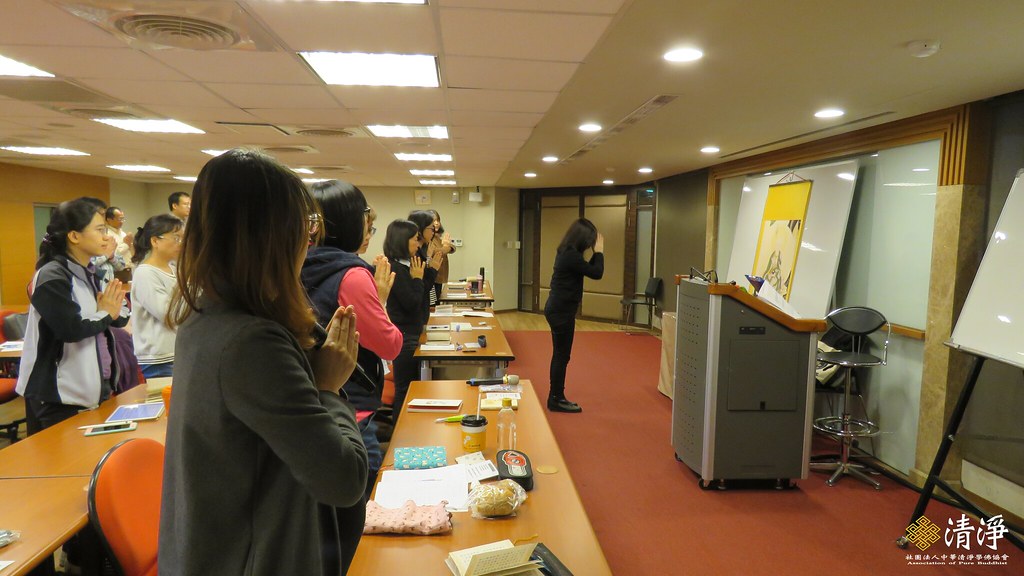
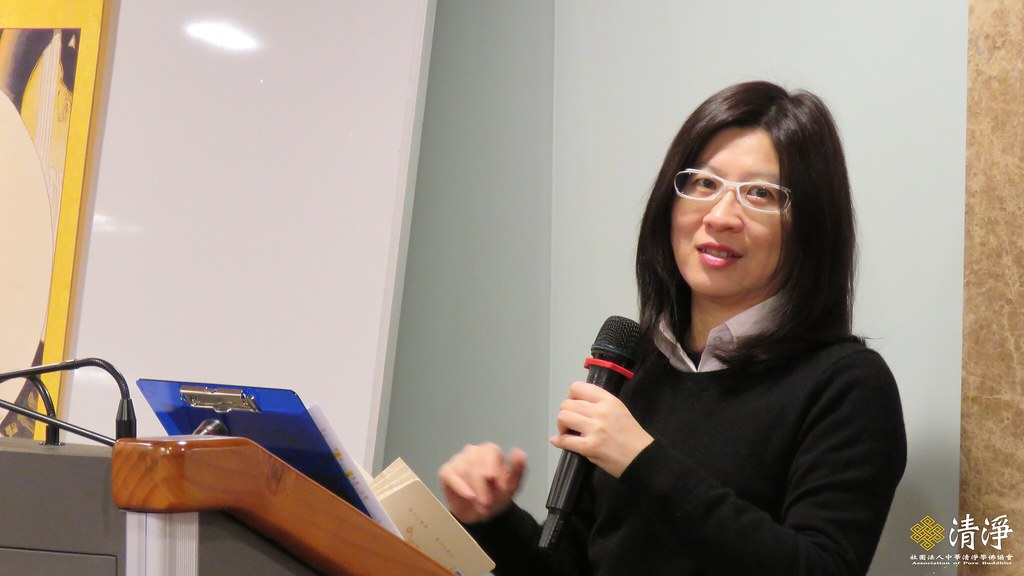
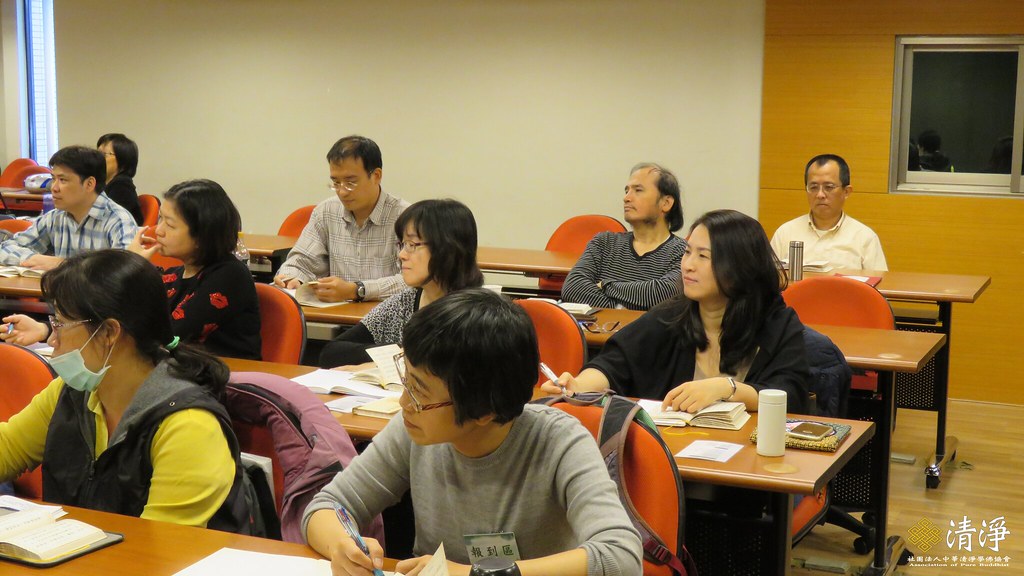
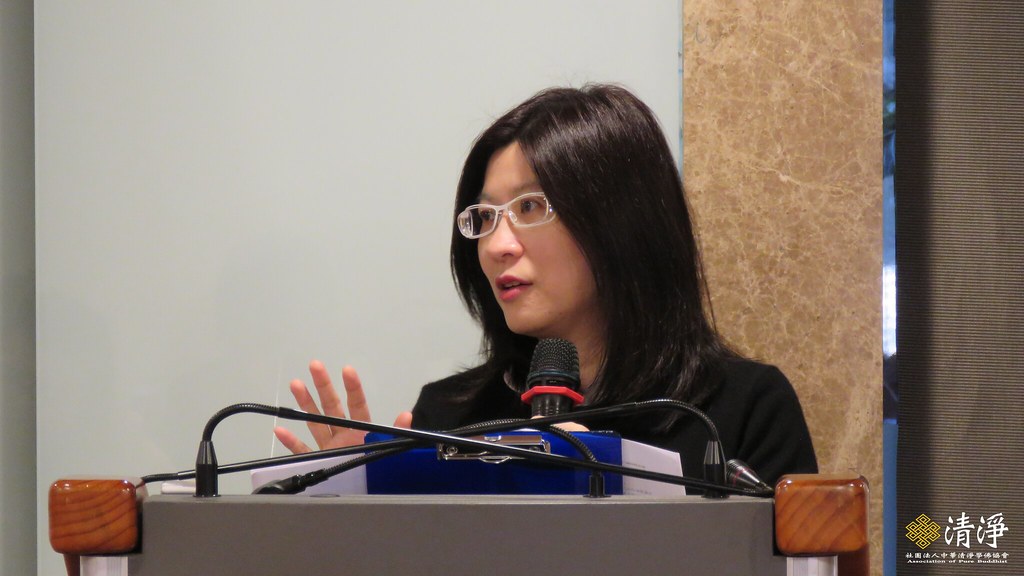
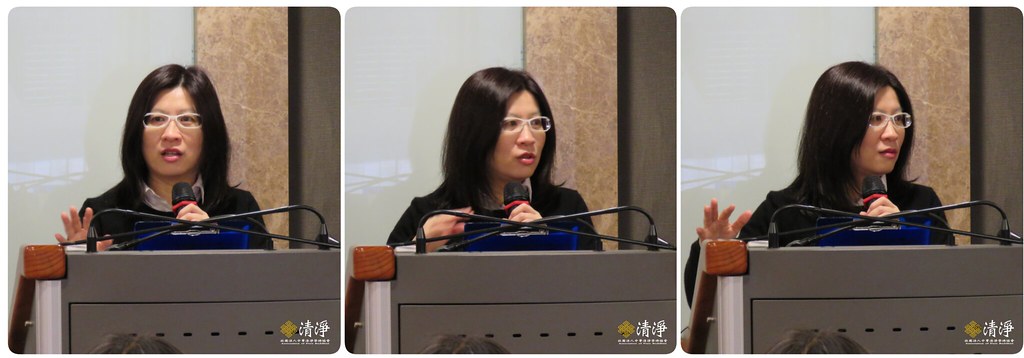

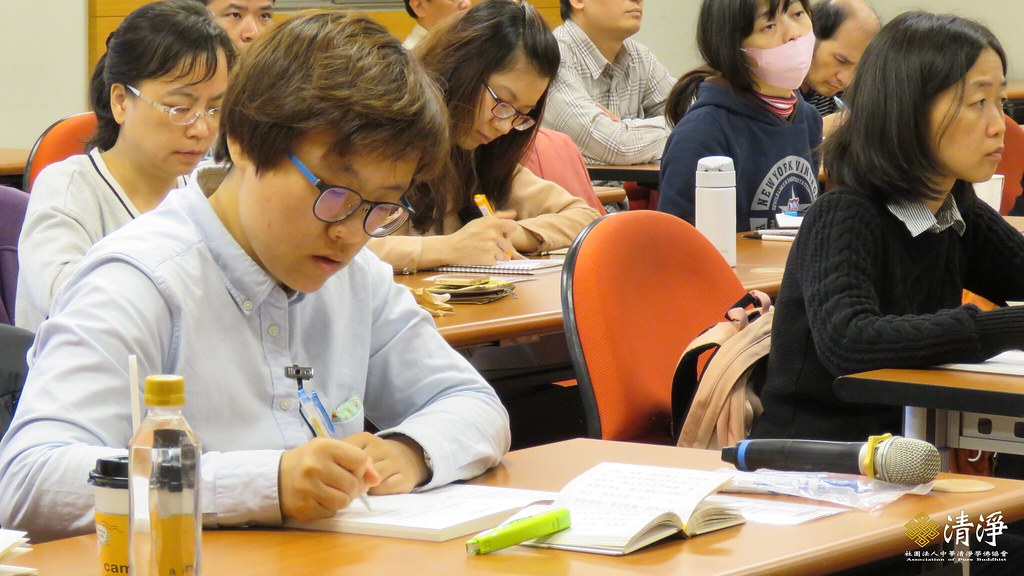
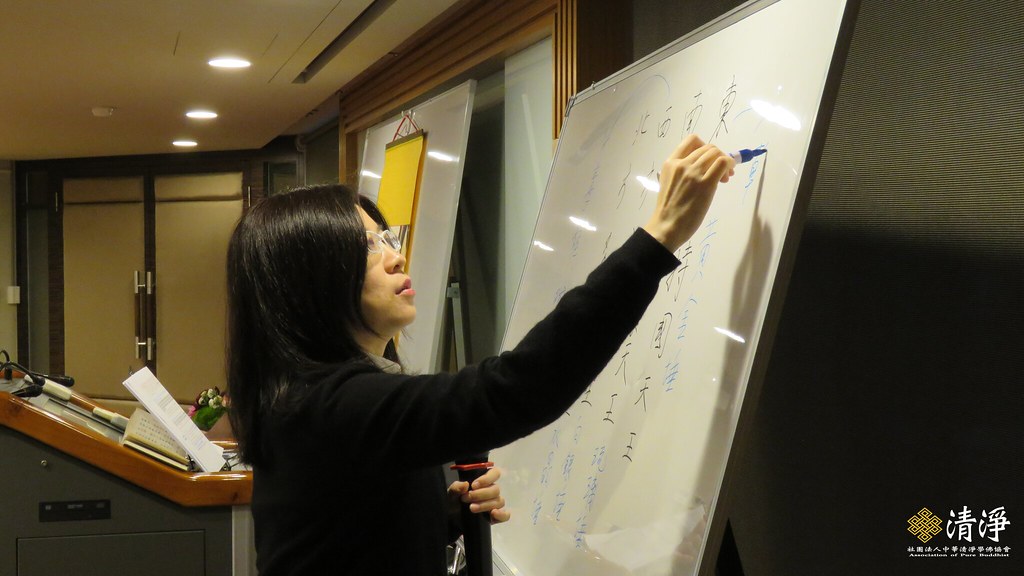

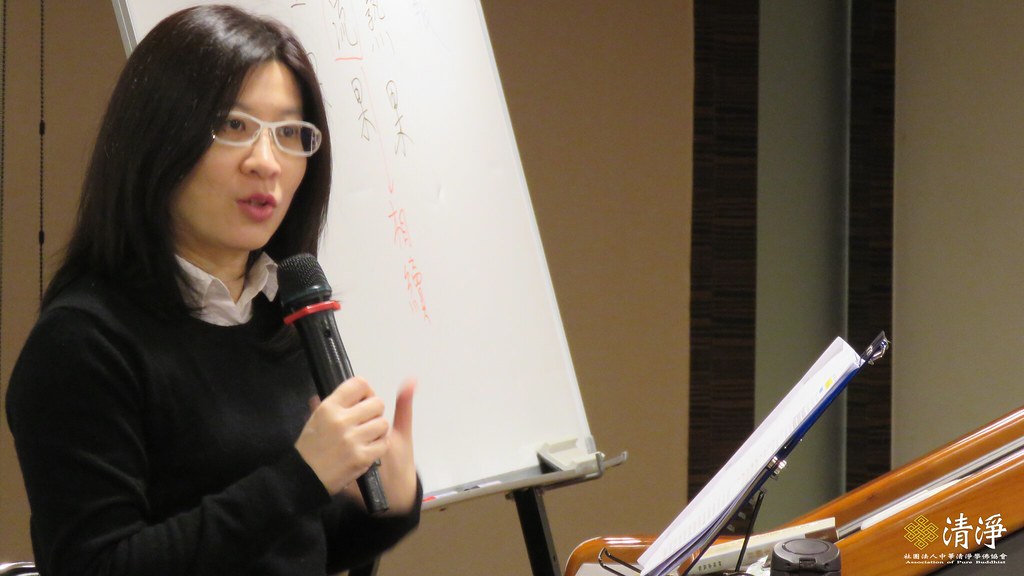
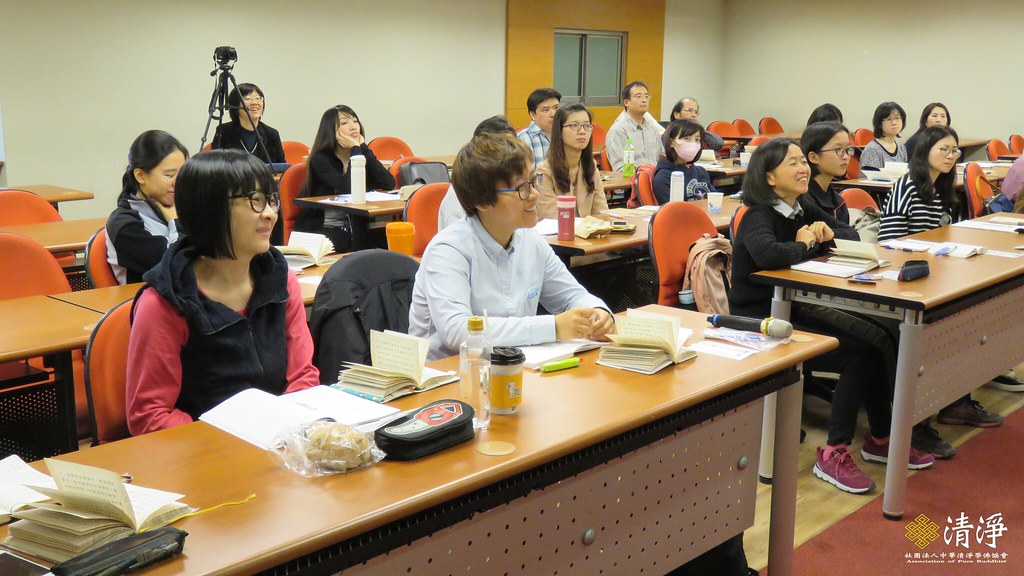
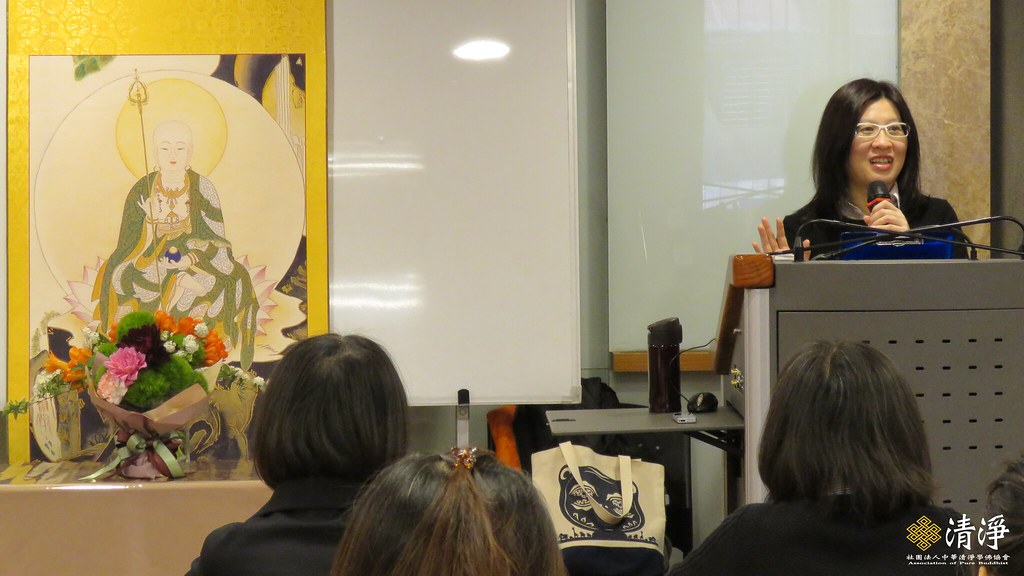


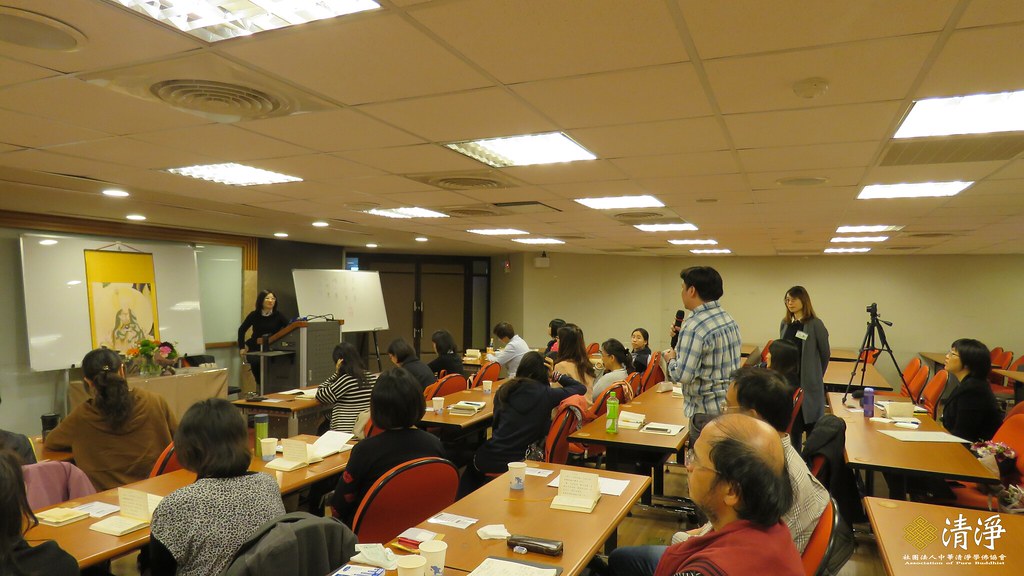
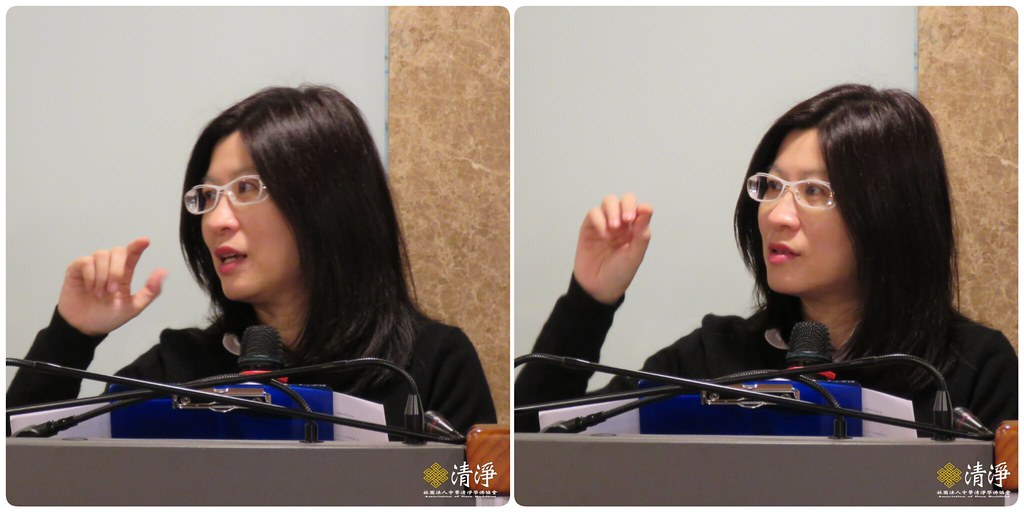
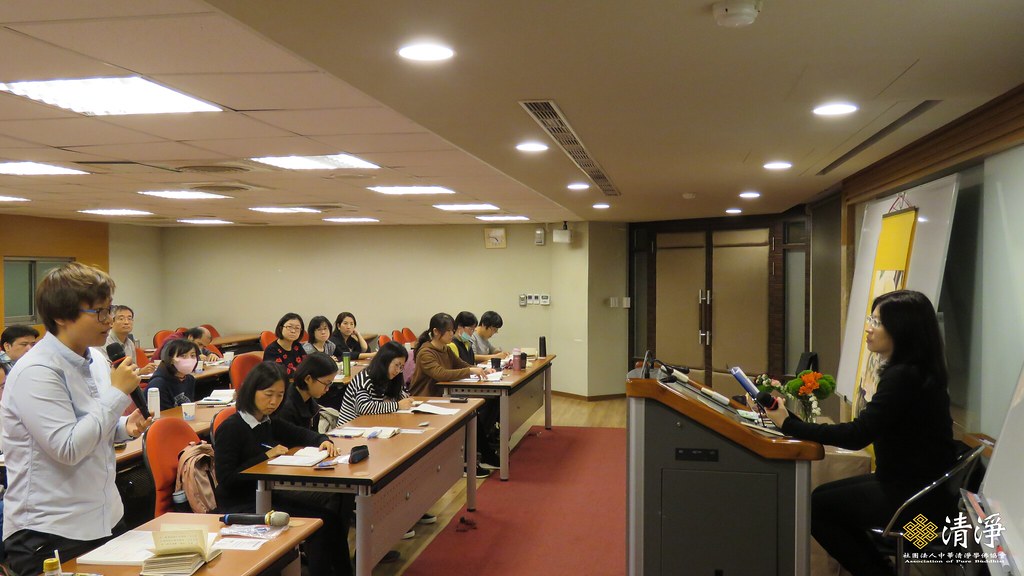
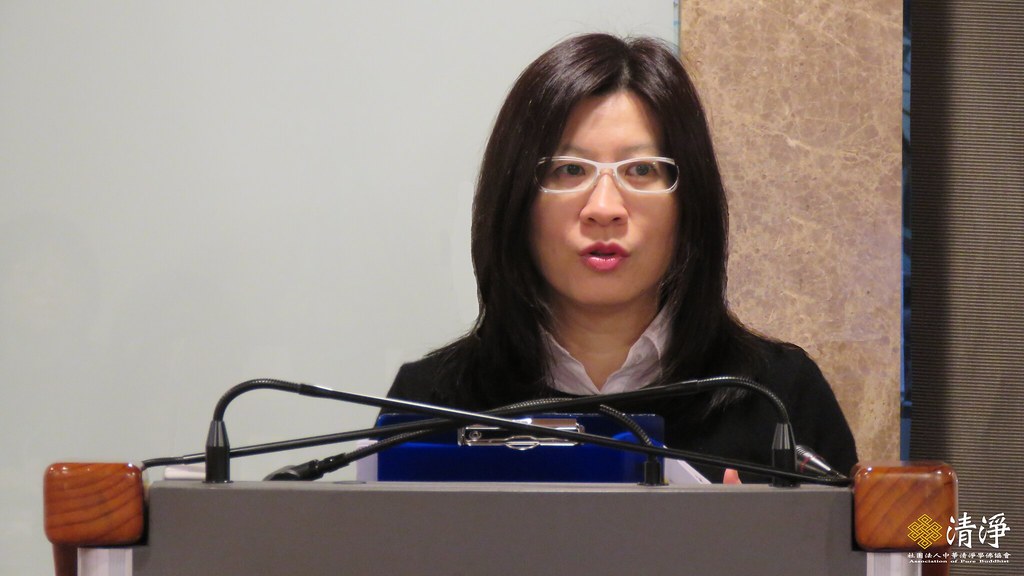
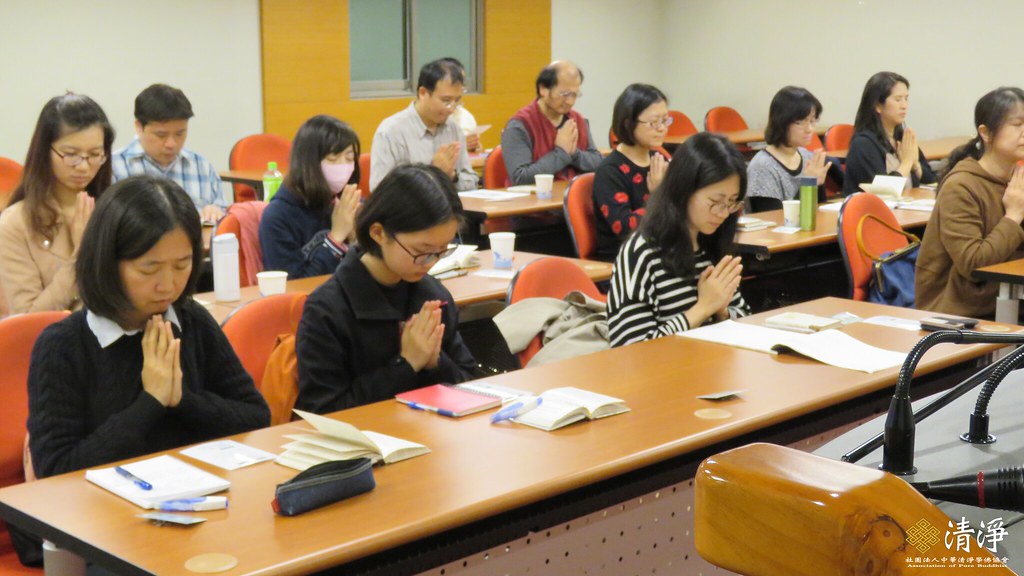
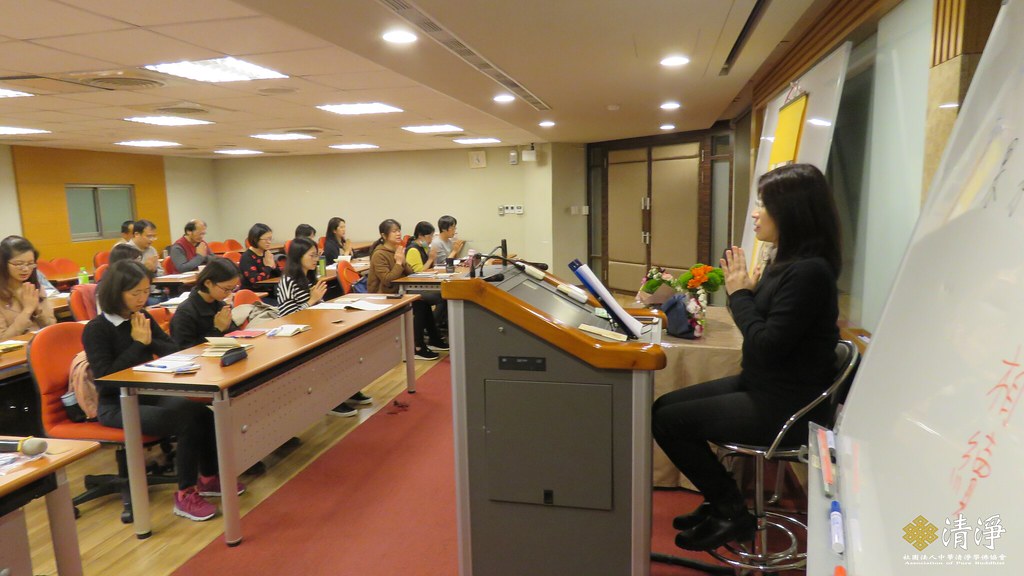


 留言列表
留言列表
